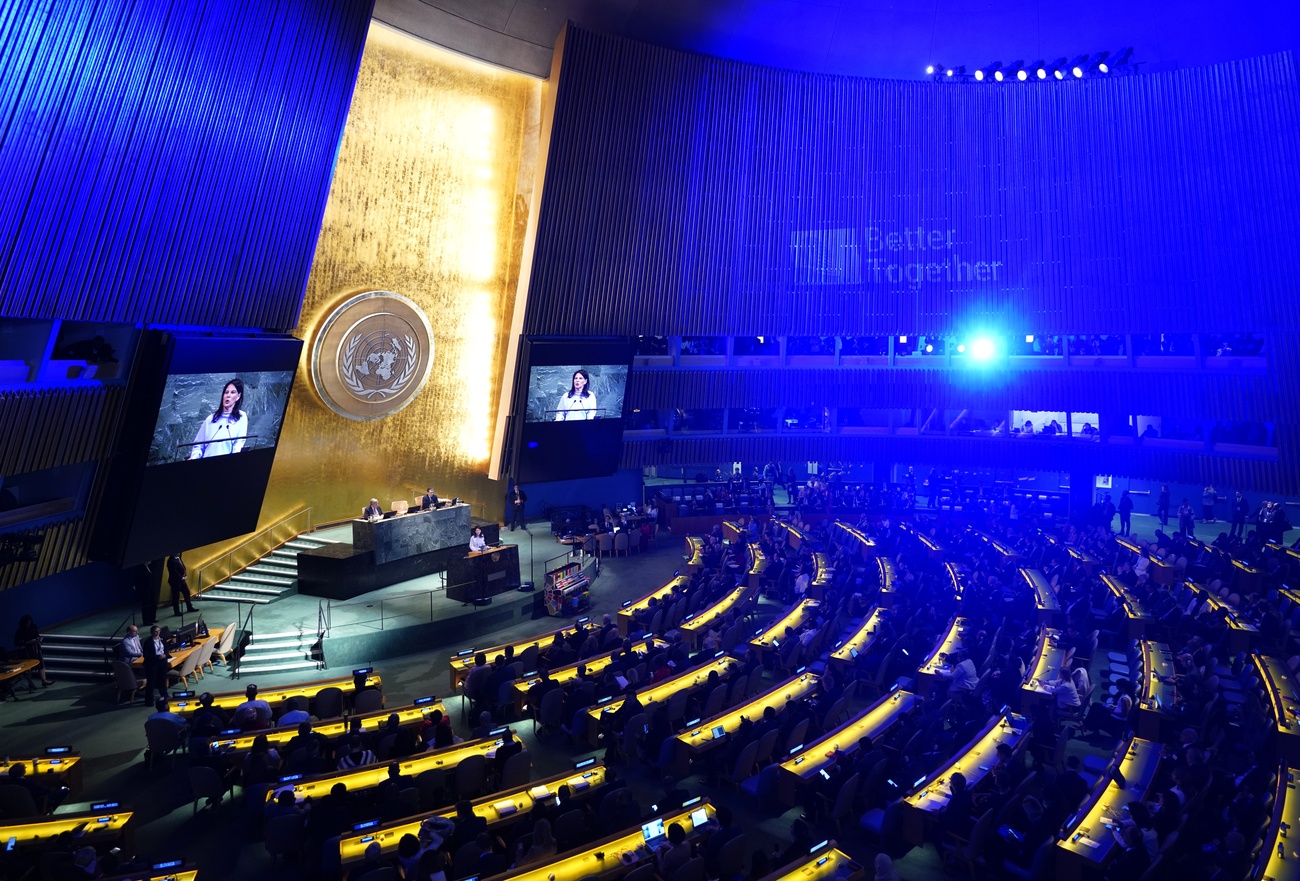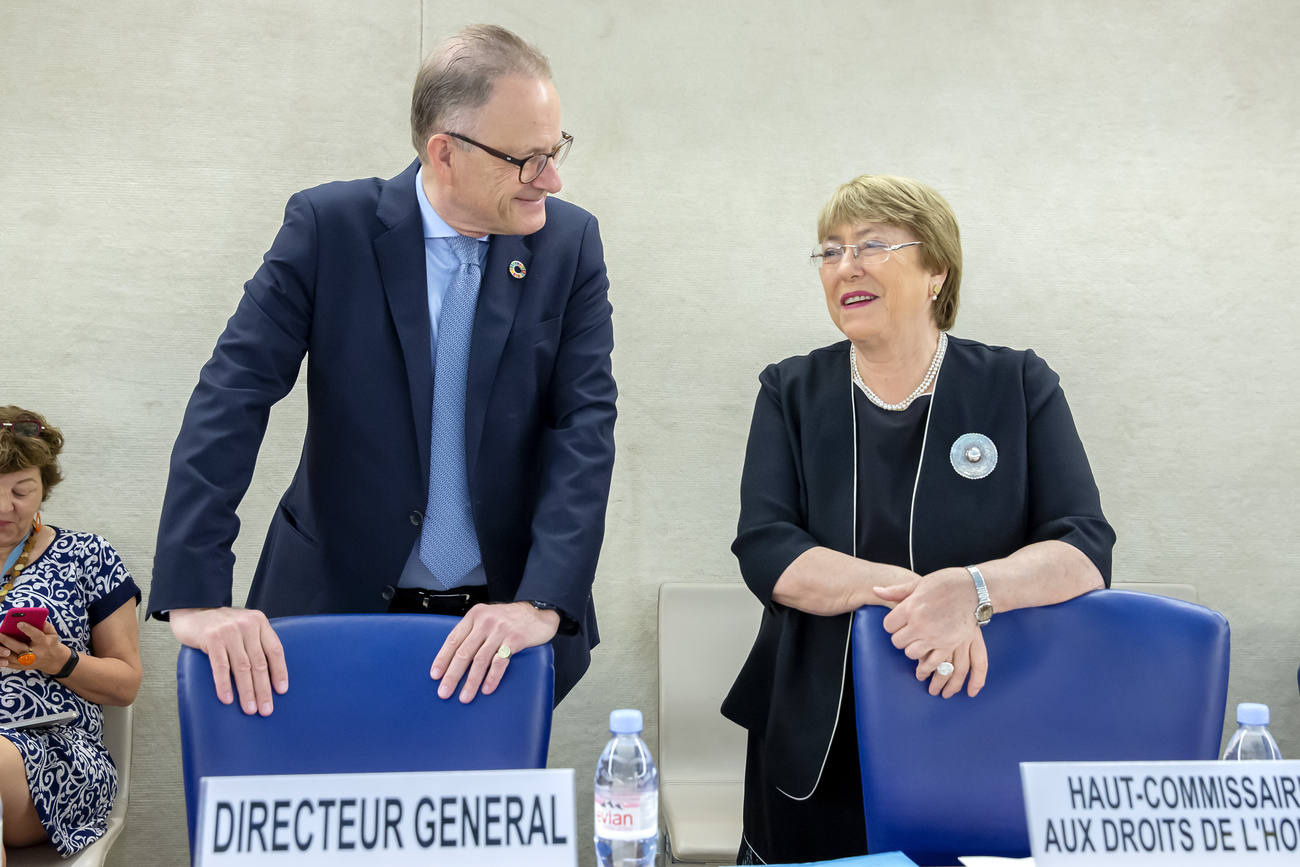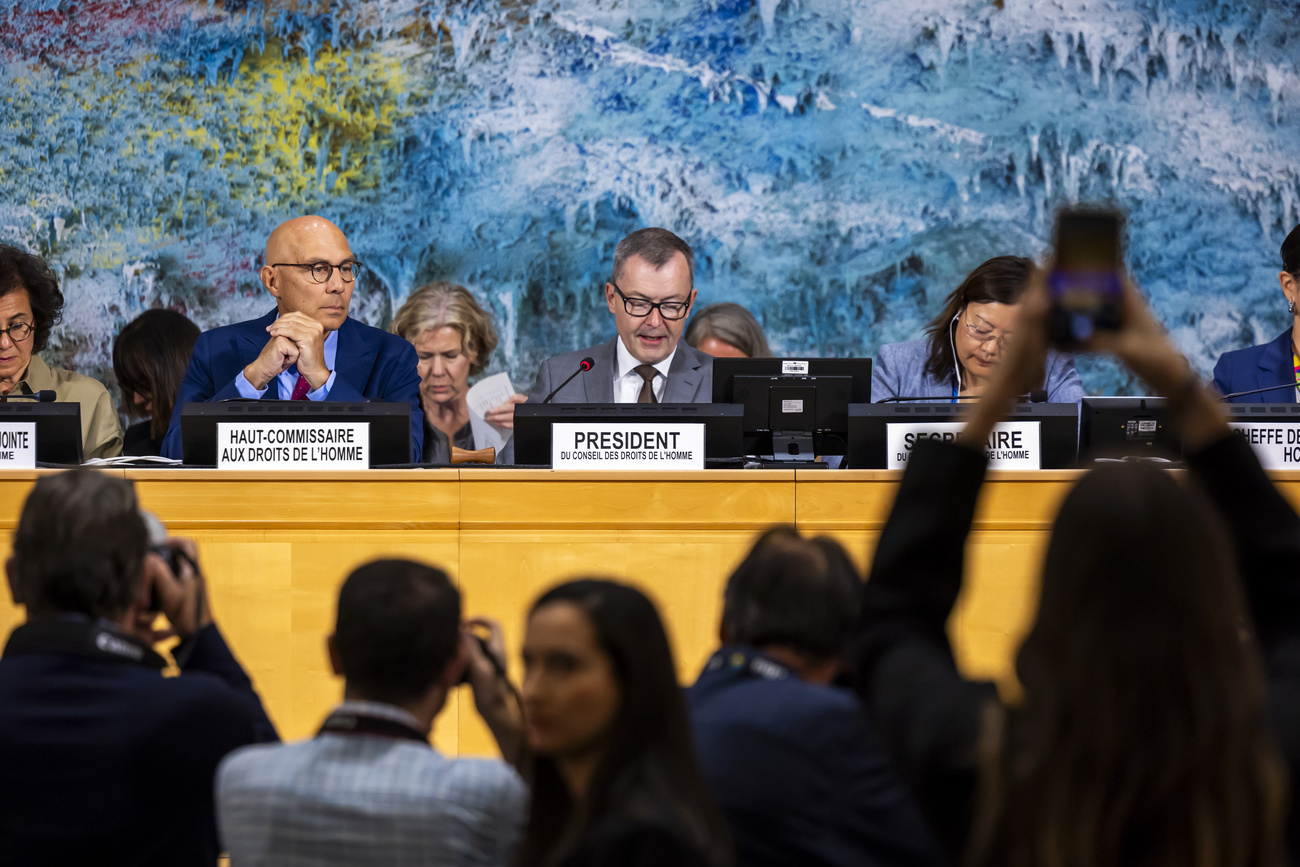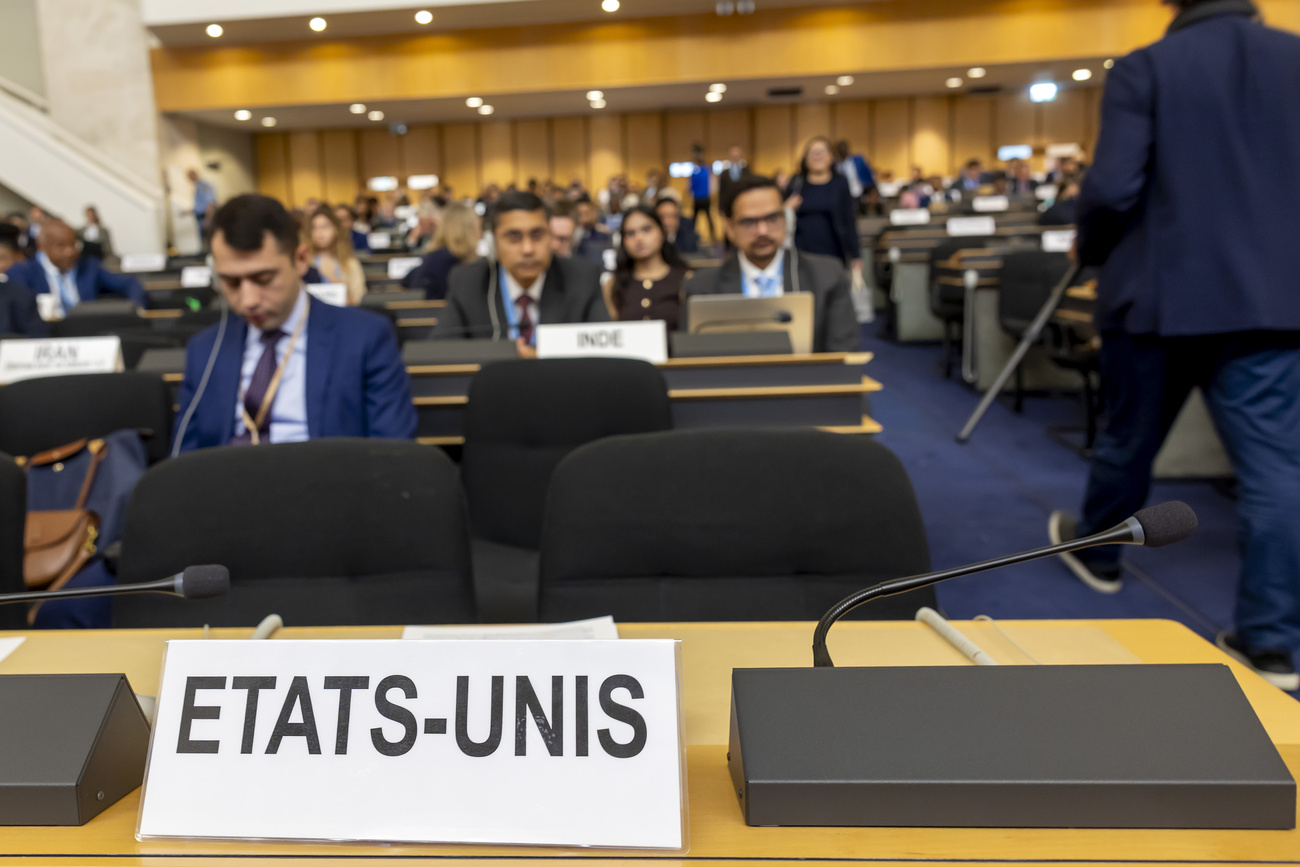
The UN and democracy – how do they interact?

The US disengagement from the international order and the resulting crisis of multilateral bodies raises the question of how such institutions are linked to democracy – or whether they could even serve as tools for dictatorships.
“The UN system is not perfect,” says Michael Møller, who was the director-general of the UN Office at Geneva until 2019. “But since its creation after the Second World War, it has brought about a unique level of peace, rights and well-being.”
Møller understands why some people today see the Security Council as dysfunctional. However, UN education, food and development projects continue to make a real difference on the ground, he argues.
And while the impact of individual UN agencies has decreased over the past decade, Møller says, multilateral structures are still a driver of peace and democracy.

Others, meanwhile, believe this success story is under threat.
The current “global climate of radical uncertainty” is shaking “long-held assumptions about democratic resilience and multilateralism”, writes the 2025 report by the International Institute for Democracy and Electoral AssistanceExternal link (IDEA) – a situation partly due to the US government.
The US – a key donor and pillar of the international order since the Second World War – is pulling out of some multilateral structures. In some cases, countries like China are stepping in to fill the gap. And multilateral organisations not known for democracy, such as the BRICS group or the Shanghai Cooperation Organization, are moving onto centre stage.
In this context, the question arises of whether multilateralism and democracy are necessarily mutually reinforcing – or, under new circumstances, could multilateralism become a force for democratic decline?
Is there a link between multilateralism and democratic backsliding?
Research by US political scientist Anna M. Meyerrose points in this direction. She warnsExternal link that states undergoing democratic backsliding could act as Trojan horses in undermining international organisations. To illustrate this, she and her colleague, Irfan Nooruddin, analysed voting data from the UN Human Rights Council (UNHRC) from 2006 to 2021.
They focused on states that experienced democratic decline after a period of democratisation. According to the research, such “backsliders” pose a greater challenge to the Human Rights Council than their “long-time non-democratic counterparts”. Backsliding states are more likely to abstain or vote against targeted resolutions which name and shame specific countries. They are also more likely to use the Universal Periodic ReviewExternal link (UPR) mechanism to criticise human rights failings in western democracies, in order to “challenge the established liberal international order”.
Read more about the work and challenges of the Human Rights Council in our article about its latest session:

More
Human Rights Council meets in Geneva amid budget crisis
Meyerrose sees multilateral organisations as partially responsible for democratic decline in many states. The actions of international organisations after the end of the Cold War “unintentionally created conditions conducive to democratic backsliding,” she wrote in response to a request from Swissinfo. Her book on the subject, Eroding Democracy from the Outside In, will soon be published by Oxford University Press.
International democracy promotion efforts, Meyerrose says, focused on building strong states and governments – an approach which might have enabled initial democratisation, but which ultimately made the dismantling of democracy more likely in the medium term.
This is because other key democratic institutions, such as political parties, were neglected by the international support. After 1989, more and more power was generally delegated to international organisations, in the hope that autocratic regimes would open up – but this also led to weakened party systems at the local level.
Is there a link between peace and democracy? Find out more in our article below:

More
Does democracy really make the world more peaceful?
Despite her rather sobering perspective, Meyerrose believes that the promotion of democracy can motivate states to preserve at least “minimalist” forms of democracy.
As for the US’ “renewed isolationism under the current Trump administration”, she is critical. “Unchecked and unreversed, the US refusal to defend the liberal international order against its detractors places the world in waters uncharted since the interwar era of the 1930s,” she says.
Meyerrose fears a further erosion of the Western democratic coalition which has marked the past 20 years, largely because the UNHRC – and the international human rights system it leads – have fewer and fewer supporters.

Democracy defined by the UN
Within UN bodies, meanwhile, dictatorships are represented just like democracies.
As a result, rather than using the potentially sensitive term “democratisation”, words like “justice” and “participation” are often used. “But now we are seeing how these – already watered-down – concepts are also disappearing from UN documents at the request of US delegations,” says the political scientist Christine Lutringer.
Together with Laura Bullon-Cassis, Lutringer has tried to shed light on the links between democracy and multilateralism. as part of a cooperation project between the Kofi Annan Foundation and the Geneva Graduate Institute.
A policy briefExternal link, produced as part of the project, states that human rights are a fundamental element of democratic societies. What’s more, democracy is the only form of governance that enables “the full enjoyment of all human rights.”
It was only in 2002 that the UN Commission on Human Rights defined democracy – and in a comprehensive way stretching far beyond the holding of regular elections. Democracy, according to its definition, includes personal and societal freedoms, the rule of law, the separation of powers, accountability and a free media. According to this definition, democracy is the only form of governance in which human rights and fundamental freedoms can exist.
During the various discussions for the project, Bullon-Cassis was struck by a rather surprising fact: participants realised that they talked only too rarely about the core of democracy. “Especially at our roundtable on democracy and human rights, held here in Geneva on the margins of the Human Rights Council, participants – diplomats and high-level figures – emphasises how rarely they place democracy at the centre when discussing human rights,” says Bullon-Cassis.
Does ‘minilateralism’ support democratic development?
Yet Lutringer also sees positive signs for multilateral development. The African Union recently put forward a comprehensive definition of democracy, while there are signs in Geneva that smaller states are becoming more active and getting more involved. There is already talk of “minilateralism”, Lutringer says.
Geneva’s multilateral sphere is about much more than the UN, as the graph below shows:
If US disengagement means that democracy is perceived less as a Western concept, then this could be a positive thing, adds Bullon-Cassis.
In the West, the mood among activists and NGOs is gloomy, but some other parts of the world are seeing democratic awakenings. In Bangladesh, an authoritarian government was recently overthrown, Lutringer notes. Bullon-Cassis mentions Nepal, where voters chose an interim head of government using the online platform Discord.
At the same time, Bullon-Cassis points out that “a country not usually associated with democratic governance, such as China, is assuming a stronger leadership role in global governance”. For the moment, it remains unclear whether this is happening within the UN framework or “outside existing channels of multilateralism”.
In the past, democracies were demonstrably more active in the multilateral area. “Democratic states participate more often in international negotiations and multilateral systems,” Lutringer says. It now remains to be seen what happens when a big democratic state moves in a different direction.

More
Our democracy newsletter
The UN General Assembly as ‘a form of democracy’
While the two researchers collaborating with the Kofi Annan Foundation are rather cautious in their arguments, Møller – who is on the board of the Kofi Annan Foundation – is convinced that multilateralism will remain a driver of democracy.
“The UN is in a transitional phase; an evolution is taking place,” says Møller, who worked for the UN for over 40 years. But the world cannot survive without a multilateral system. The global system of states is so interconnected today that cooperation is essential.
For Møller, the process of exchange within a multilateral framework is in itself a contribution to democratisation. “There are, if you will, different levels of democracy: local, national and global. The UN General Assembly in New York exemplifies a form of democracy in which every single country comes together and discusses how to tackle global issues that have to be tackled together.”
More
Edited by David Eugster/gm. Adapted from German by Julia Bassam/dos

In compliance with the JTI standards
More: SWI swissinfo.ch certified by the Journalism Trust Initiative





























You can find an overview of ongoing debates with our journalists here . Please join us!
If you want to start a conversation about a topic raised in this article or want to report factual errors, email us at english@swissinfo.ch.